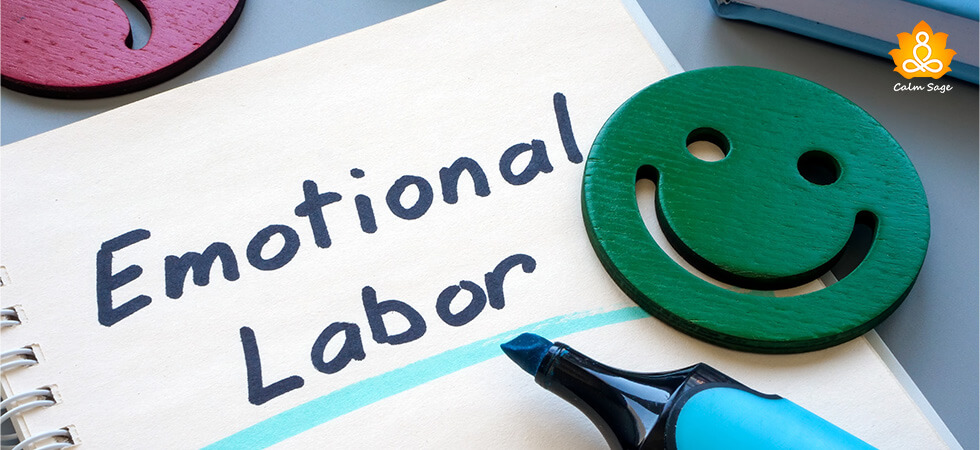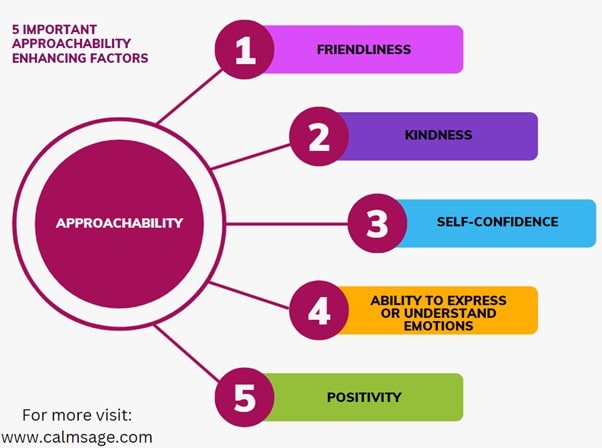What is Emotional Labor: Types, Example and Consequences

Have you ever felt exhausted after spending time with unknown people or people with whom you can be your honest self? Where do you think that exhaustion comes from? It usually happens when you return from a social gathering you didn’t want to attend.
This exhaustion comes from emotional labor. Knowing or unknowingly we are constantly managing our emotions when we are put in an uncomfortable zone. This is because we can’t express our true emotions at the moments when we need to make an effort to cover them up with expected behavior.
We can see this very clearly in workplaces like call centers, salespeople, insurance offices, etc. These people are constantly trying to convince their clients to buy whatever they are selling. They are often expected to be as nice as possible with their clients.
Now what happens here is they are constantly suppressing their true feelings. They have to put an effort into managing their emotions in such a way that their true emotions do not surface. And that effort and management require energy and labor, called emotional labor.
What Is Emotional Labor?
Emotional labor can be described as the effort one puts into managing your emotions, feelings, and expressions. Emotional labor is most active when we interact with other people, work for people, convince clients, etc.
Emotional labor happens when you suppress difficult and negative emotions like frustration, irritation, hurt, the forced need to be pleasant, etc. Most people who experience emotional labor are experts in managing their emotions and expressions in a way that no one’s feelings are hurt.
Now, in order to protect others’ feelings, we don’t realize the pain we inflict upon us. Understandably, you can’t always express your true emotions but suppressing them all the time is also not right. Emotional labor can be dangerous for our mental and emotional well-being.
Also read: If You Internalize Your Emotions, Then You Should Try 8 Strategies to Stop
Types Of Emotional Labor
Emotional labor doesn’t really have different types because it is impossible to divide your emotional effort into types. However, the expression of emotions that cause emotional labor can be divided into two parts.
Let’s have a look at them;
- Surface Acting: it is when you display your emotions publicly however your inner emotions and your outer expression do not match. In fact, such people do not even try to feel the emotions that they are expressing.
- Deep Acting: when it comes to deep acting your emotional labor becomes even more intense. In deep acting one purposely tries to feel the emotions they are expected to display. For example, if you are expected to deal with your clients with a happy face, you forcefully try to be happy.
Emotional Labor Examples
Emotional labor is not a rare occurrence, many people from various walks of life can experience emotional labor. We aren’t always in a chirpy mood, however being cranky in public is always looked down upon. Therefore, we tend to maintain a pleasant exterior so that we don’t offend other people.
Let’s understand emotional labor with the help of some examples;
1. Workplaces:
emotional labor was first studied in the context of workplaces. It is believed that we need to behave or act in a certain way because you’re in a professional environment. Most emotional labor is experienced in workplaces because you can’t freely express your true emotions as there is a lot at stake. Therefore, you tend to suppress your frustration/irritation and act as if you are completely satisfied.
2. Healthcare workers:
a hospital is one place where you can witness a wide range of emotions. However, healthcare workers need to be as pleasant, kind and empathetic as possible because that’s what people expect from you. You can ask a panicky person to shut up or deliver bad news like it’s an everyday tale.
3. Political setting:
we have all heard about how diplomatic politicians are but have you ever wondered how much emotional labor they have to bear? They have to be conscious of what they say almost all the time therefore, they need to be very calculative about how they express themselves.
4. Family setting:
this is the trickiest one, your family is your top priority therefore you can’t afford to hurt their feelings. In order to protect them from emotional damage you tend to suppress your emotional needs so that you can cater to their needs. You are expected to take care of everything and everyone in the family but your emotional needs remain unmet.
Consequences Of Emotional Labor
Emotional labor can have a huge impact on your mental and emotional health. With time the intensity of emotional labor increases and it becomes very difficult to control yourself. A sudden outburst can cause even more damage.
Research says that experiencing emotional labor has positive as well as negative consequences. Let’s have a look at the negative consequences of emotional labor;
- Faking your emotions for a long time can cause emotional dissonance
- A prolonged period of displaying false emotions can invite identity-related issues and develop a constant state of distress
- Emotional exhaustion is another result of experiencing emotional labor for a long time
- People who indulge in surface acting have a tendency to develop feelings of depersonalization
- Emotional labor tends to experience a reduced sense of personal accomplishment
Here are some positive consequences of emotional labor;
- When you reserve your emotions only to make someone happy, it can give you a sense of accomplishment
- Deep acting can help you convert your negative emotions into positive ones
- Emotional labor can help you navigate your negative emotions and not give in to them



